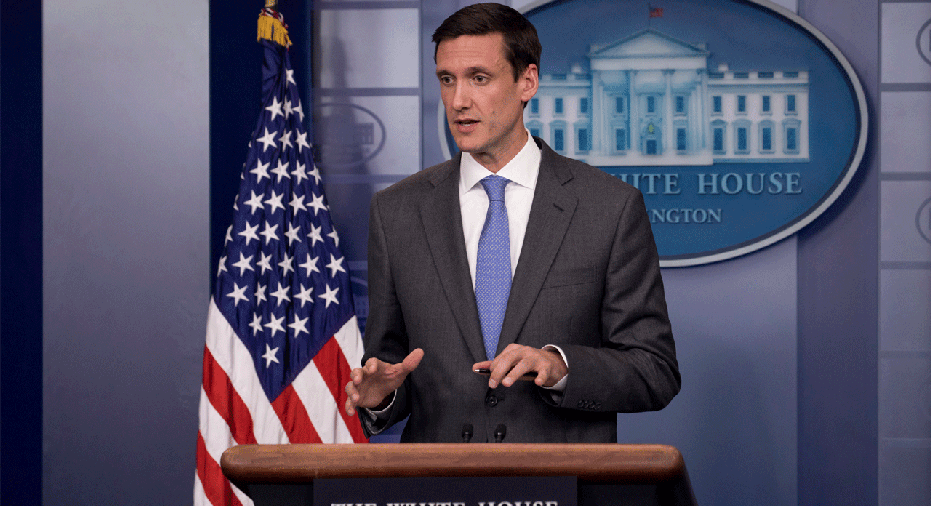Trump administration developing first-ever bio-defense strategy

The Trump administration is developing the first comprehensive strategy to defend the United States against disease pandemics and biological attacks by terrorists, the top White House homeland security official said on Thursday.
“We have not had as a country a comprehensive bio-defense strategy ever,” White House homeland security adviser Thomas Bossert told the annual Aspen Security Forum, in Aspen, Colorado. “It’s high time we had a bio-defense strategy.”
The effort involves retired Admiral Tim Ziemer, who oversaw the Obama administration’s initiative to fight malaria in Africa, and the White House hopes to publish the new strategy “as soon as we can,” said Bossert, who provided no further details.
Bossert noted that the Bush and Obama administrations took steps to address biological threats after letters containing anthrax spores were sent to two Democratic senators and several news organizations in the weeks following the Sept. 11, 2001 attacks. The spores infected 22 people, five of whom died.
But, he added, “There have been a lot of fits and starts in our investments.” “At this point, we need to look clear eyed at the fact that we may have a devastating pandemic influenza or an intentional anthrax attack,” said Bossert.
He noted recent news reports that scientists in Canada used commercially available genetic material to construct the extinct horse pox virus, a relative of the small pox virus, which claimed tens of millions of lives before being wiped out.
“That’s (horsepox) not going to kill any of us, but that suggests that somebody might now in the future possess the ability to produce synthetic small pox without a live virus and that scares me to death,” he said.
The threat of disease pandemics demands global attention, he said.
Some experts have criticized the Trump administration for seeking reductions in funding for global health programs that they contend would hurt the country’s ability to prevent and respond to biological threats like pandemics.
Bossert, however, said that the administration plans to give “full-throated support” to the Global Health Security Agenda, a partnership of more than 50 nations and international organizations that works to build countries’ capacities to prevent and fight infectious diseases.



















